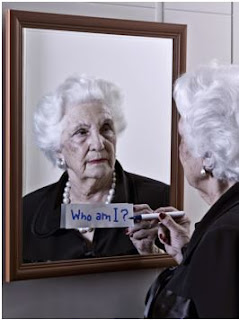Westchester Family Care: Case Study
If you’re lucky enough to have elderly parents, you’re going to need help taking care of them. You could not do better than Westchester Family Care. Almost 2 months ago, my sister and I—who live hours away—saw both of our parents’ frailties, ailments and physical limitations all reach a critical point which resulted in a need for near-constant supervision. Glenn and his team at WFC have given us the precious commodity of peace of mind. Here’s why:
Commitment to excellence. I have not experienced a single instance in which I questioned Glenn’s motivation. He has one and only one goal: to care for my parents and ensure their health and safety to the best of his and his firm’s ability. Along those lines, he took it upon himself to do a close inspection of the house and make recommendations for safety improvement. He has also gone to the trouble of bringing in vendors to get estimates.
Reliability. Glenn is the captain of the ship and sees to it that there is coverage pursuant to the agreed-upon shifts/days/times. And when he says something, you can bank on it. Not once has someone even been late, let alone not shown up. (When I was first researching agencies, mind you, I called a few others. Weeks later, I am still waiting for some of those calls to be returned.)
Caretaker quality. Throughout many years of apartment living, and via word of mouth from friends in my situation, I’ve seen and heard countless instances of aides to elderly individuals whose attention is not on those in their care. Never the case with WFC. Glenn has provided my parents with consistency (a team of the same individuals) which is paramount when “strangers” in the house are intruding upon a lifetime of habit and independence. The aides were selected with great care, with an eye toward who would make the best “match” for each parent, based on various individual criteria, including gender, temperament and skill set (e.g., driving, cooking). When an elderly client is simply watching television, for example, an aide might opt to sit in the next room or turn her attention to her phone. “J” wouldn’t dare. She sits next to my father and casts an eagle eye firmly in his direction. “V” engages my mother in positive affirmations upon greeting the day. “T” takes my father to meet his friends and knows just the right balance of being there without hovering or being overbearing.
Medical management. Barbara is the nurse in charge and personally implements any change in medication. She first confirms the change with the physician and then makes additions/deletions to the prearranged pills that reflect those changes. Glenn works with us to ensure that my parents are at every doctor’s appointment while Barbara follows up as needed. In the time since WFC became a part of our extended family, there have been two emergencies when paramedics needed to be called. The aides called Barbara who immediately called me to give me an update and discuss the situation.
Inter-agency engagement. Glenn and his nursing staff handled everything for us in terms of bringing in the visiting nurse service and other services such as physical therapy to which my mother was entitled. They handled everything. Not once did we have to pick up a phone to call another agency or Medicare. Anyone who has ever gone this route before understands what a drain it can be both from a time and emotional perspective to have to deal with government agencies on your own.
Administration. WFC’s online portal makes it so simple for me to keep up with invoices and make payments (linked electronically to a checking account). I can also see at a glance a log of the various caretakers’ hours and how they were billed. I find the fees to be reasonable and Glenn exercises the utmost consideration and latitude in assessing how his agency’s services will be billed. (Don’t tell Glenn this, but I’d pay double!) WFC makes the challenging privilege of having elderly parents exponentially easier to bear. When I count my blessings, I now count him and his team among them.



